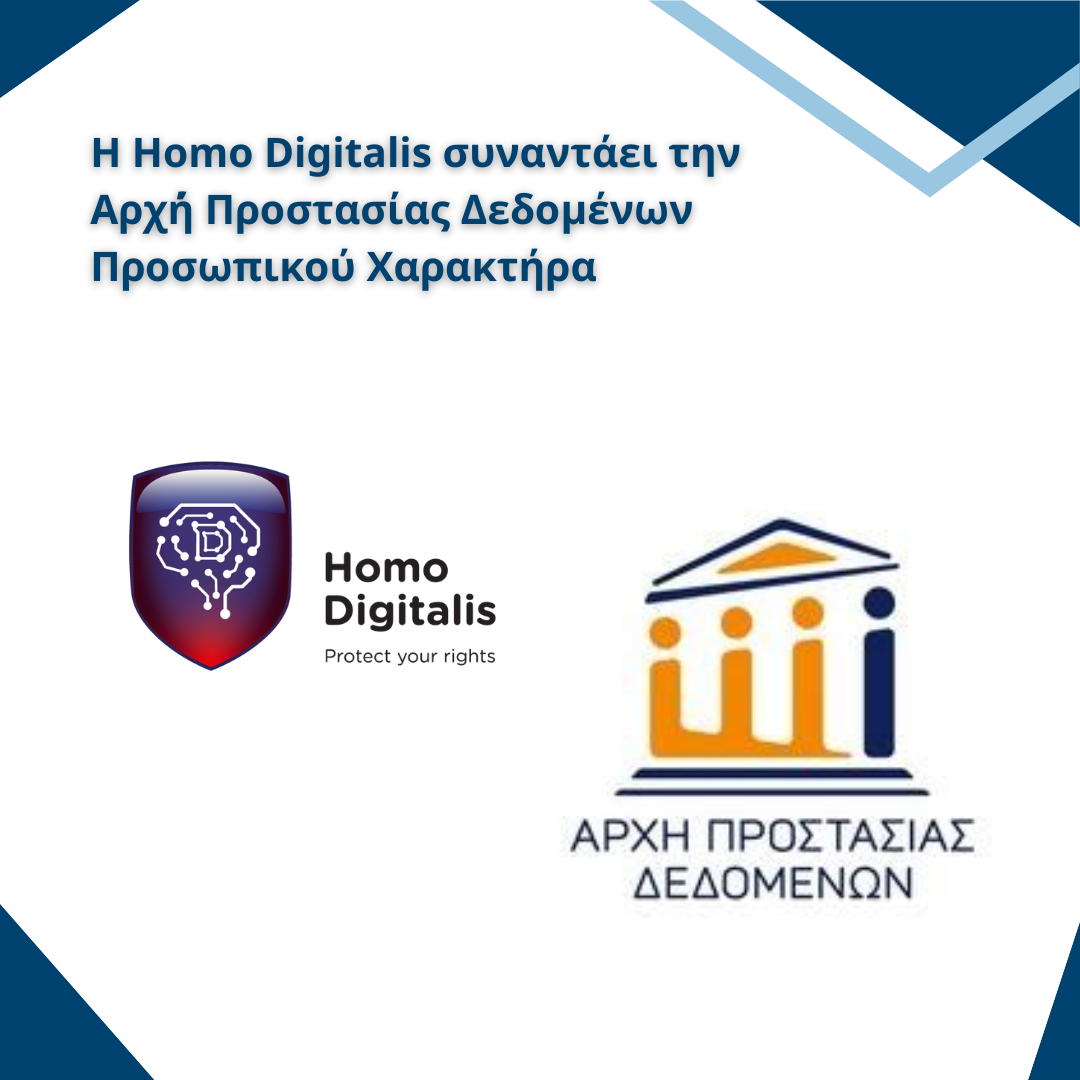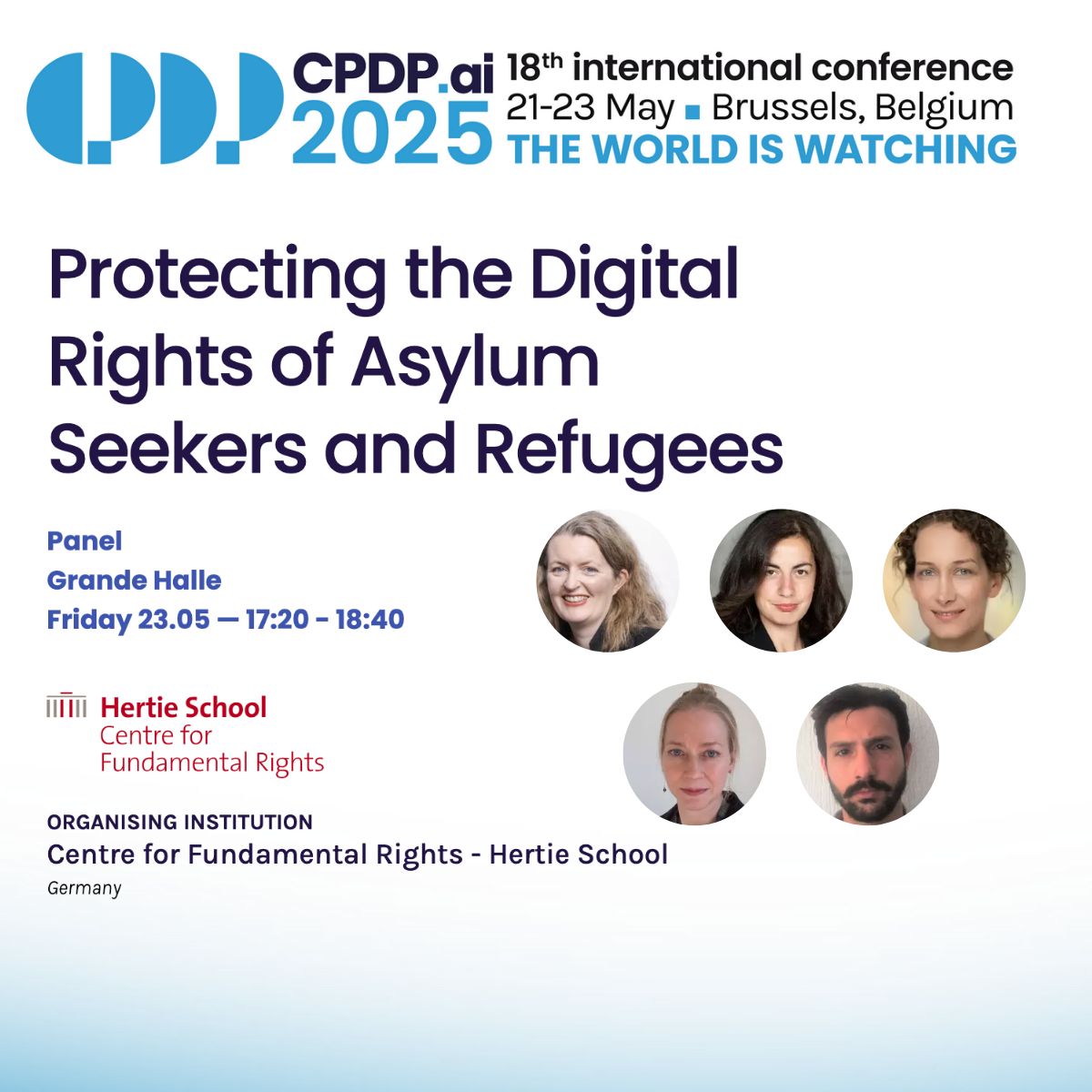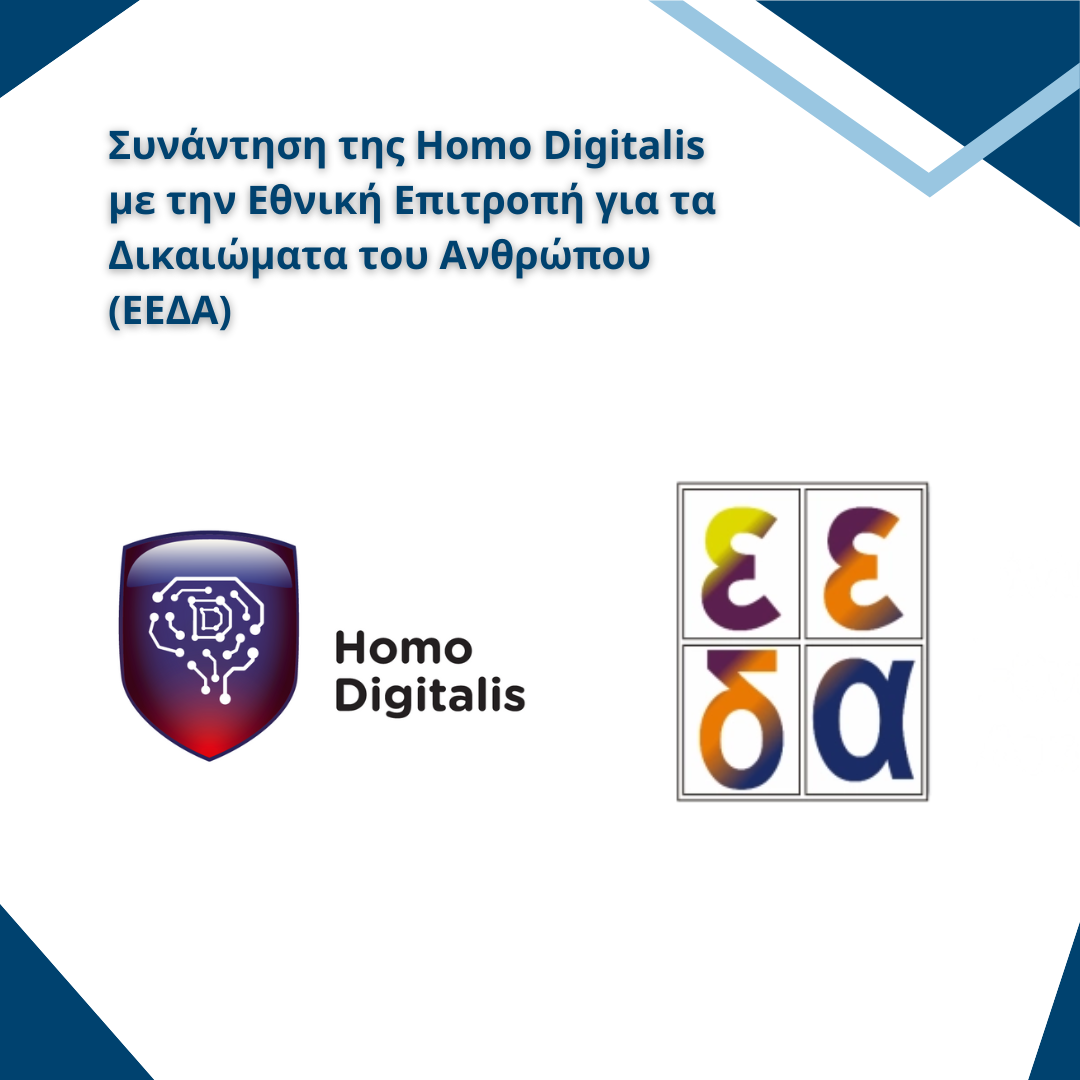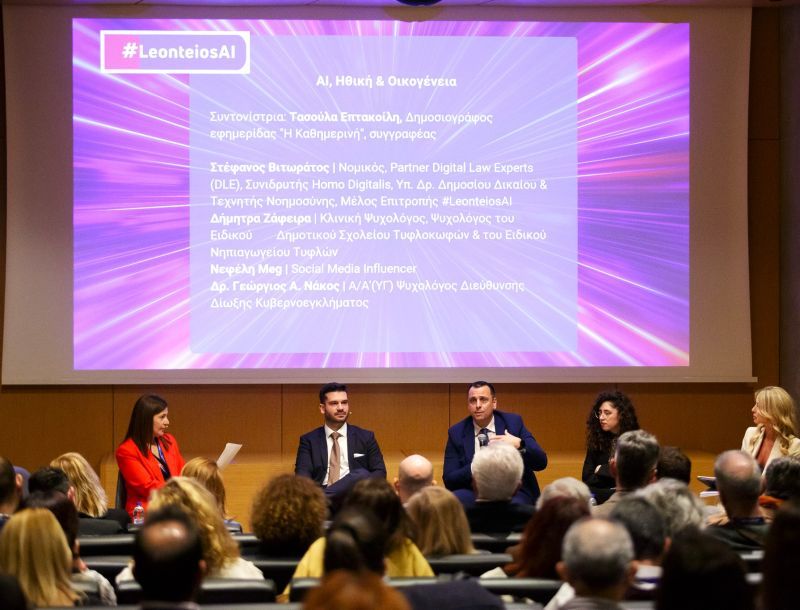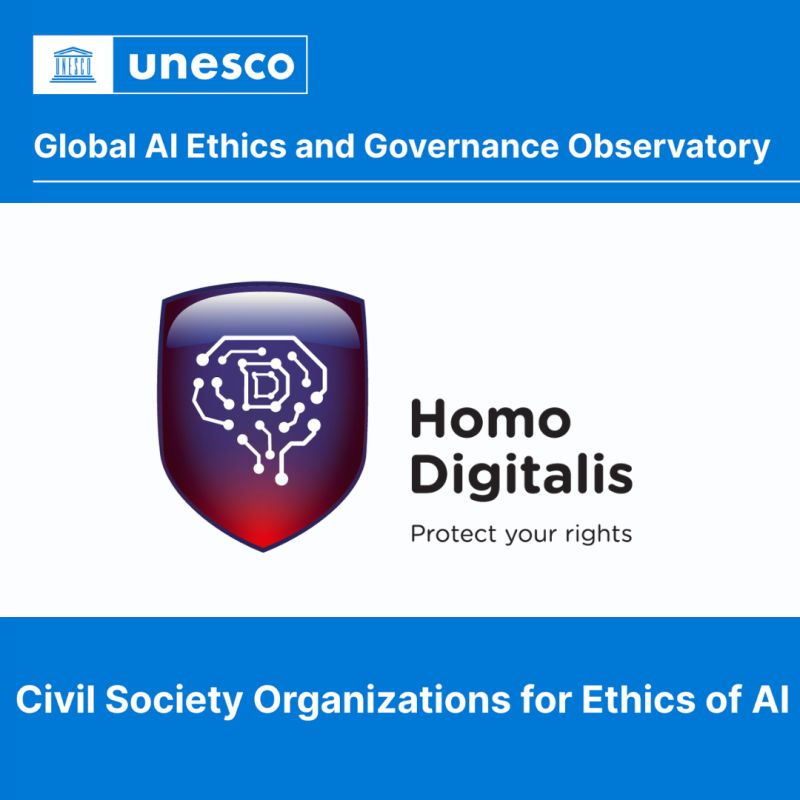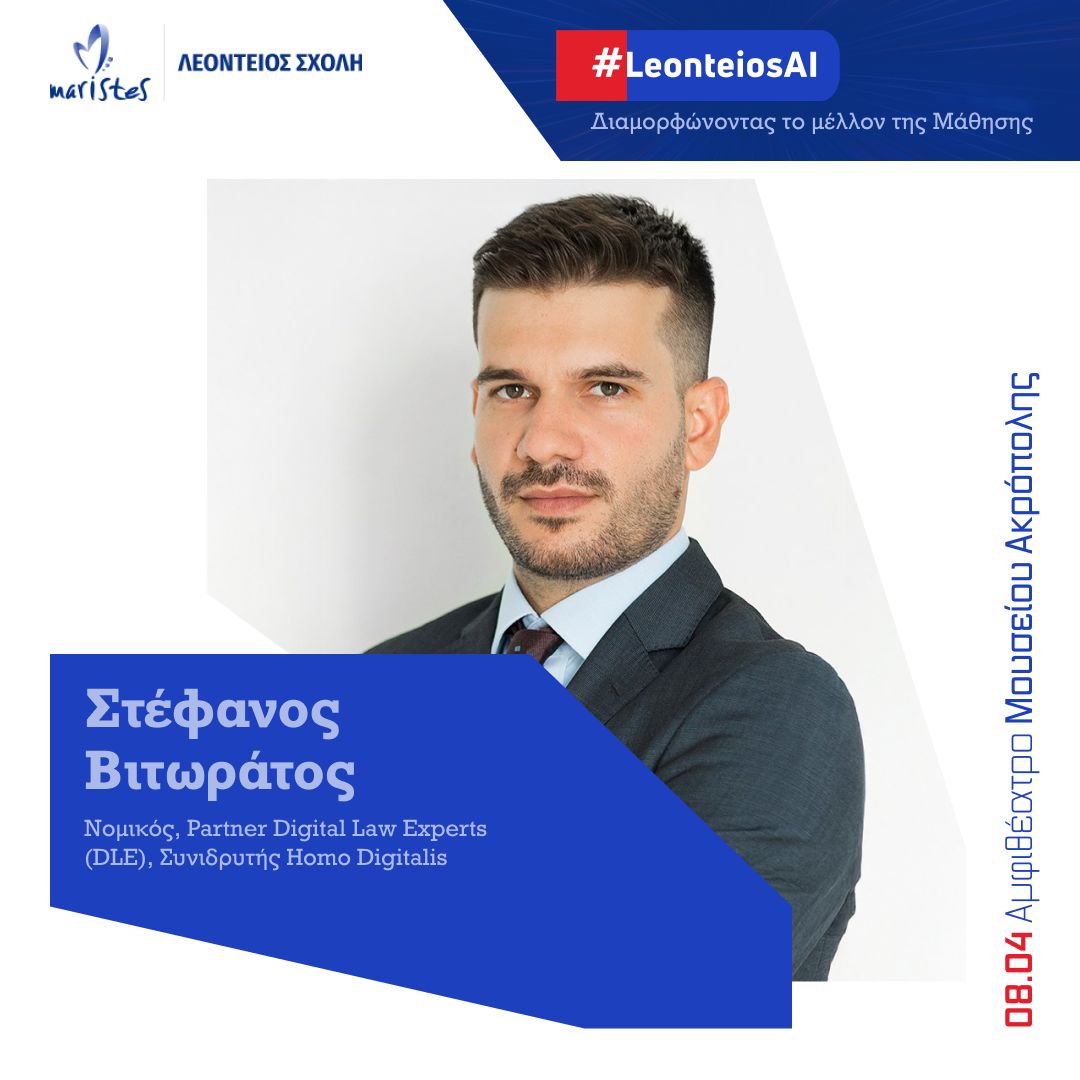Homo Digitalis meets with the Hellenic Data Protection Authority
The Hellenic Data Protection Authority (HDPA) welcomed the non-profit organization Homo Digitalis to its offices on May 30, 2025, for a meeting on issues related to digital rights, personal data protection, and artificial intelligence. Among other topics, the discussion covered recent developments in the field of new technologies, relevant cases and requests we have submitted before the Authority, as well as the role of the HDPA under the European Union’s Artificial Intelligence Act, following its designation as one of the authorities under Article 77 of the Regulation (Powers of the authorities for the protection of fundamental rights).
Participating in the meeting were Homo Digitalis Co-founder and Executive Director Eleftherios Chelioudakis and Homo Digitalis Director of Human Rights and Artificial Intelligence Lamprini Gyftokosta.
Homo Digitalis Speaks Once Again at CPDP!
Homo Digitalis participated once again in the largest international conference on data protection, Computers, Privacy and Data Protection (CPDP), with a talk on the panel “Protecting the Digital Rights of Asylum Seekers and Refugees”, organized by the Centre for Fundamental Rights – Hertie School!
Eleftherios Chelioudakis, Co-Founder and Executive Director of Homo Digitalis, represented us as a speaker on the panel, alongside Francesca Palmiotto (IE University), Derya Ozkul (University of Warwick), and Joanna Parkin (EDPS – European Data Protection Supervisor) on Friday, May 23.
Congratulations to the organizing team at the Hertie School and to Ida Reihani for the excellent collaboration!
Homo Digitalis meets with the National Commissioner for Human Rights (NCHR)
The Greek National Commission for Human Rights (GNCHR) welcomed the NGO Homo Digitalis to its offices on May 13, 2025, for a meeting focused on digital rights and artificial intelligence.
Among other topics, the discussion covered recent developments in the field of emerging technologies, the EU Artificial Intelligence Act and its implementation, as well as the role of the GNCHR under the Regulation, following its designation as one of the authorities referred to in Article 77 (Powers of Fundamental Rights Monitoring Authorities).
Participants in the meeting included Professor Maria Gavouneli, President of the GNCHR, Elli Varchalama, Second Vice-President of the GNCHR, Dr. Christos Tsevas, Special Scientist, Eleftherios Chelioudakis, Co-Founder and Executive Director of Homo Digitalis and Lambrini Gyftokosta, Director of Human Rights & Artificial Intelligence at Homo Digitalis.
Homo Digitalis speaks at Digital World Summit Greece
Speaker Announcement | Digital World Summit Greece 2025 – 22/05/2025
We are pleased to announce that Stefanos Vitoratos will represent Homo Digitalis as a speaker on the second panel of Digital World Summit Greece 2025, titled:
“The Future of Artificial Intelligence: The Next Decade in AI Development and Best Practices.”
Register here to attend the conference for free, either in person at Technopolis City of Athens or online.
Stefanos Vitoratos is a Co-founder of Homo Digitalis and Managing Partner at Digital Law Experts (DLE), specializing in data protection compliance, cybersecurity, and artificial intelligence.
He is a member of the European Data Protection Board (EDPB) Pool of Experts for Greece, Co-Chair of the Hellenic Knowledgenet Chapter of the International Association of Privacy Professionals (IAPP), and has been awarded the title Fellow of Information Privacy (FIP) by IAPP, holding both CIPP/E and CIPM certifications.
He is also a member of the Research Group of the Center for AI & Digital Policy (CAIDP) and collaborates with the European Commission as an Ethics Expert for funded projects. In the past, he has served as a consultant for leading companies in Greece as well as at the Permanent Representation of Greece to NATO.
In parallel, he is pursuing his academic path as a PhD Candidate in the Department of Public Administration at Panteion University, focusing on AI in public administration and public-private cooperation in relevant projects. He holds a Law degree from the National and Kapodistrian University of Athens, and two Master’s degrees from City, University of London and Panteion University.
He frequently delivers professional seminars, publishes scholarly articles, and participates in academic conferences as a speaker or moderator.
Homo Digitalis at Startup Europe Week 2025 of JOIST Park
Στις 13 Μαΐου, σε περιμένουμε στο JOIST Innovation Park, εκεί όπου η καινοτομία συναντά τις ευκαιρίες.
Το φετινό event συγκεντρώνει πρωτοπόρους στην τεχνητή νοημοσύνη, την κυβερνοασφάλεια, την επιστημονική έρευνα και την επιχειρηματικότητα χωρίς σύνορα – για μια ημέρα γεμάτη τολμηρές ιδέες και ουσιαστικό αντίκτυπο.
Τι περιλαμβάνει το πρόγραμμα;
AI, Cybersecurity, and the Future of Startups
• Λαμπρινή Γυφτοκώστα – Homo Digitalis
• Αναστάσιος Αραμπατζής – Ειδικός Κυβερνοασφάλειας
• Παναγιώτης Πιέρρος – TicTac S.A.
Bridging the Gap: Turning European Scientific Research into Startups
• Ιωάννης Κουρούτζης – Πανεπιστήμιο Θεσσαλίας
• Φώτης Τέκος – Foodoxys / Olea Fortius
• Κέλλυ Παπαδοπούλου – Pi tech
• Κωνσταντίνος Ακρίβος – Indeex
Scaling Startups Across Borders in Europe
• Λάμπρος Κούρτης – Επενδυτής & Μέλος VC
• Manuel Seuffert – IMP³ROVE Academy
• Αχιλλέας Μπαρλάς – Enterprise Europe Network Hellas
Είσαι έτοιμος να συνδεθείς με το ευρωπαϊκό startup οικοσύστημα;
Κάνε εγγραφή εδω.
Homo Digitalis is once again participating in the Digital World Summit Greece "AI Realities: Policy, Possibilities, Power"
The Digital World Summit Greece returns in 2025, taking place in Athens on Thursday, May 22, to shape the ongoing discussion around the developments and realities of Artificial Intelligence at a technological, political, social, and cultural level.
This year’s conference focuses on three key pillars:
Opportunities and challenges for Greece as a hotspot of technological advancement
The next steps in AI evolution and best practices
Safe development and use of Artificial Intelligence
Renowned speakers and representatives from the government, private and public sector, civil society, as well as the technical and academic community, will gather to discuss and propose solutions regarding crucial aspects of AI use and governance at national, European, and global levels.
The event will conclude with networking drinks.
Thursday, May 22 | 10:00–18:30 at Technopolis City of Athens– “Miltiadis Evert” Amphitheatre & Online
Free admission (registration required). Secure your spot and help shape the Future of Artificial Intelligence here.
Stay tuned to Digital World Summit Greece‘s channels for more updates on themes and speakers!
We successfully participated at the panel "AI, Ethics & Family" at the event organized by the Leonteios School Network
Another proud moment! Our co-founder Stefanos Vitoratos and partner at Digital Law Experts (DLE) participated earlier the previous week, in the LeonteiosAI- Shaping the world of education Conference held at the iconic Acropolis Museum, as a Leonteios School Athens alumni and a member of the LeonteiosAI Committee!
Stefanos has contributed to the initiative on adopting AI as part of the school’s educational procedure. Heartfelt thanks to the organizers and committee members for assembling such an inspiring and forward-thinking group of professionals.
Homo Digitalis is member of UNESCO's Global AI Ethics & Governance Observatory
We are very pleased to announce that Homo Digitalis has been selected as a member of UNESCO’s Global AI Ethics & Governance Observatory!
Homo Digitalis is the only member of the network from Greece, once again highlighting our strong expertise and experience on these issues since the very first months of our founding, back in 2018!
You can learn more about the organizations participating in the network and its activities here.
Homo Digitalis participates in the panel "AI, Ethics & Family" at the Artificial Intelligence event of the Leonteios School Network
Homo Digitalis is delighted to take part in the panel “AI, Ethics & Family” during the event organized by the Leonteios School Network, titled “LeonteiosAI – Shaping the Future of Learning.”
Stefanos Vitoratos, Co-Founder of Homo Digitalis and Partner at the law firm Digital Law Experts (DLE), is representing us at the event.
Our fellow panelists include representatives from key institutions, including the Minister of Social Cohesion and Family, Ms. Domna Michailidou.
The event will take place at the Acropolis Museum (Amphitheater “Dimitrios Pandermalis”) on April 8, 2025.
